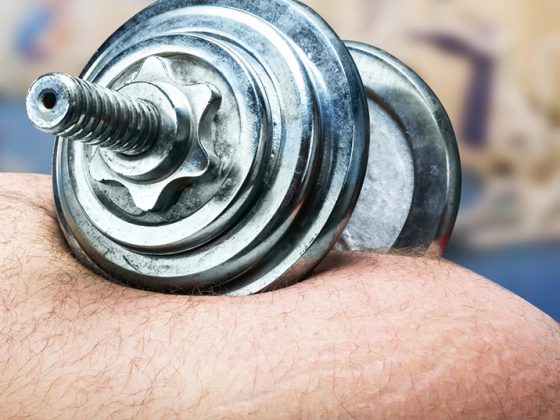For acute leukemias, allogeneic hematopoietic stem cell transplantation (HSCT) is a widely used therapeutic option with prospects of cure. An important reason for the late morbidity and mortality of HSCT is chronic graft-versus-host disease, a cytotoxic reaction of implanted immune cells against the host organism. A new randomized study from the University Medical Center Hamburg-Eppendorf shows that the graft-versus-host risk can be significantly reduced by an antihuman T-lymphocyte immunoglobulin (ATG) in the conditioning phase.
In the prospective phase III multicenter study, 161 patients with acute leukemia were randomized to either the group with or without ATG in transplant preparation. Immunoglobulin ATG was part of myeloablative preparatory therapy for stem cell transplantation. The dose of immunoglobulin was 10 mg/kg bw for three days. Subsequently, allogeneic stem cell transplantation was performed from the peripheral blood of an HLA-identical sibling.
Peripheral blood as a source of stem cells is considered a risk factor for chronic graft-versus-host disease, as are transplanted stem cells with high numbers of T cells and the occurrence of an acute graft-versus-host reaction. Meta-analyses found an incidence of extensive chronic form of 47% in HLA-identical siblings after stem cell transplantation from peripheral blood [1].
Fewer graft-versus-host cases with good tolerability
In this study, the incidence of chronic graft-versus-host disease was significantly lower in the ATG group at 24 months, 32.2% instead of 68.7% with the standard regimen (p<0.001). For pronounced clinical forms, the percentage difference was particularly marked at 44.8% (7.6% vs. 52.4%). Acute graft-versus-host reactions of grade 2, 3, or 4 occurred with equal frequency (10.8% vs. 18.1%, p=0.13).
The fear that there would be more infections and recurrences with ATG was not confirmed: the two groups had comparable rates. It had been suspected that with the reduction of T cells by ATG, the desired graft-versus-leukemia effect would also be lost and relapses would increase (previous in vivo and ex vivo studies had suggested this). Contrary to this theory, 59.4% patients in the ATG arm and 64.6% in the standard arm lived free of recurrence after two years (p=0.21). Overall survival was 74.1% and 77.9%, respectively (p=0.46). For the composite endpoint “2-year survival free of chronic graft-versus-host disease and free of recurrence,” the ATG group was significantly superior to the comparison group (36.6% vs. 16.8%, p=0.005).
Complications attributed to infection were found in 57.8% and 54.2%, respectively (p=0.65). No other differences were found with regard to therapy-associated side effects. After one year, 91% vs. 39% had discontinued the immunosuppressant ciclosporin.
Positive conclusion
While progress has been made in the prevention of acute graft-versus-host reactions over the past two decades, the situation with the chronic form has been less promising. Only ATG has been shown to reduce the incidence of chronic graft-versus-host disease (after unrelated donor SCT and retrospectively after peripheral blood transplantation from related HLA-identical donors) in several randomized trials [2,3] [4,5] .
The present randomized trial confirms the benefit of ATG addition to conditioning. ATG reduces graft-versus-host incidence without significantly increasing recurrence rate. However, the nonsignificant differences in relapse rates should not be misinterpreted as equivalence of the two treatment arms, the authors said. Since the study was terminated after two years and no longer a follow-up period was added, a statement on the effect on long-term survival is not possible.
Source: Kröger N, et al: Antilymphocyte Globulin for Prevention of Chronic Graft-versus-Host Disease. N Engl J Med 2016; 374: 43-53.
Literature:
- Stem Cell Trialists’ Collaborative Group: Allogeneic peripheral blood stem-cell compared with bone marrow transplantation in the management of hematologic malignancies: an individual patient data meta-analysis of nine randomized trials. J Clin Oncol 2005; 23: 5074-5087.
- Finke J, et al: Standard graft-versus-host disease prophylaxis with or without anti-T-cell globulin in haematopoietic cell transplantation from matched unrelated donors: a randomised, open-label, multicentre phase 3 trial. Lancet Oncol 2009 Sep; 10(9): 855-864.
- Bacigalupo A, et al: Antithymocyte globulin for graft-versus-host disease prophylaxis in transplants from unrelated donors: 2 randomized studies from Gruppo Italiano Trapianti Midollo Osseo (GITMO). Blood 2001 Nov 15; 98(10): 2942-2947.
- Wolschke C, et al: Effective prevention of GVHD using in vivo T-cell depletion with anti-lymphocyte globulin in HLA-identical or -mismatched sibling peripheral blood stem cell transplantation. Bone Marrow Transplant 2014 Jan; 49(1): 126-130.
- Bonifazi F, et al: Intensification of GVHD prophylaxis with low-dose ATG-F before allogeneic PBSC transplantation from HLA-identical siblings in adult patients with hematological malignancies: results from a retrospective analysis. Bone Marrow Transplant 2012 Aug; 47(8): 1105-1111.
InFo ONCOLOGY & HEMATOLOGY 2016; 4(2): 3.











